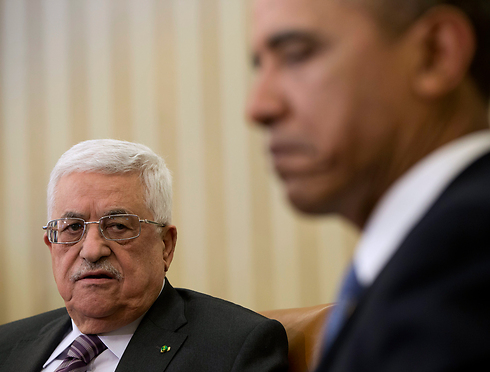Obama in the Middle East: All about ISIS and Iran
Thursday, 22 January 2015
Joyce Karam/Al Arabiya
In his sixth and perhaps most eloquent State of the Union address to Congress, U.S. President Barack Obama left no doubt about his unwillingness to be drawn to wars and conflicts in the Middle East. Fighting the Islamic State of Iraq and Syria (ISIS) defines Washington’s strategy in Syria and Iraq while making one last push with Iran for a nuclear deal will determine Obama’s legacy in the region.
The speech was uplifting and ambitious in the eyes of U.S media when it came to domestic policies, but on the foreign agenda, it was evident that Obama is sidestepping conflicts and eying containment over long-term solutions. The once lofty talk about changing the world, achieving historic peace between Palestinians and Israelis, or removing Assad from power, disappeared completely from the speech on Tuesday. Instead the message from Obama was clear: the United States will do its part to contain raging fires in the Middle East but will not pledge more military commitments to achieve breakthroughs.
No change in Syria
The speech had many references to Obama’s own reluctance and personal averseness to getting involved in the Middle East. After all, and if it were not for the rise of ISIS, there would be no air campaign in Iraq or Syria, and Obama would have seized his moment in declaring a real end for the Iraq war. In the speech, Obama made the case against “getting dragged into another ground war in the Middle East” and focused the strategy in Syria on “stopping ISIL (ISIS) advances” and “supporting a moderate opposition that can help in this effort.” The process will also “take time.”
Obama’s words on Syria should end any illusion that the United States will get more involved militarily in the conflict or is betting on an imminent political solution. Neither option is realistic for Obama. He is unlikely to set up a no-fly zone or even a buffer zone in Syria as Turkey demands. Instead the administration is laying the ground for a long war in Syria, unabated by a Russian or a ceasefire proposal. “Obama’s words on Syria should end any illusion that the United States will get more involved militarily in the conflict or is betting on an imminent political solution”
Even on Assad, the United States is not targeting his troops during the air campaign, and has abandoned any talk about him leaving office or stepping down. It is unclear as well if the 5,000 rebel contingent that the Pentagon has started training and equipping will target Assad. The official line is that it will be fighting ISIS, but contingency plans could be for a possible scenario where the trained rebel forces come fire from the Assad’s regime. ISIS is the centerpiece of the Obama containment strategy in both Iraq and Syria, the same way countering al-Qaeda in the Arabian Peninsula (AQAP) is the overarching goal in Yemen. Washington is trying to contain the current Sanaa crisis between the Houthis and the Government but without getting dragged into a military involvement.
Critical weeks for Iran
The war against ISIS and the political stagnations in Iraq and Syria will likely continue after Obama leaves office in 2016. Meanwhile, the Palestinian-Israel talks are in shambles, hence leaving the talks with Iran as Obama’s only hope for a legacy in the Middle East. Time is of the essence in the Iranian nuclear talks. Most of the political chatter in Washington is centered around Spring as a deadline to reach a framework deal with Iran and that Obama can market to Congress and/or regional allies. In his speech, the U.S. president told the highly skeptical lawmakers that “between now and this spring, we have a chance to negotiate a comprehensive agreement that prevents a nuclear-armed Iran.” Following him, Democratic Senator Chuck Schumer told CNN that discussions between the White House and Congress over new sanctions involve waiting till March before passing a new bill.
With Congress’ patience running out, and Obama’s own clock ticking to be able to get a comprehensive deal implementable before leaving office, the next few weeks prove critical for the Iranian nuclear talks. If the administration can keep ranking Democrats behind the President and delay new congressional sanctions, and if Iranian President Hassan Rowhani gets the green light from the Supreme leader Ali Khamenei, then a deal is foreseeable. But if one of these elements don’t materialize and either Congress passes sanctions by overriding the veto, or if Khamenei rejects again the West’s proposals, then a deal is forgone during Obama’s presidency.
Obama’s State of the Union address reasserted a scaled-down and more modest approach for the Middle East. Setting the policy in the White House stems from strategic objectives to counter terrorism and prevent Iran from getting a nuclear weapon. “Reacting to headlines” even if they involve humanitarian crisis does not change the calculus of a President who views ending wars a critical part of his legacy.





















